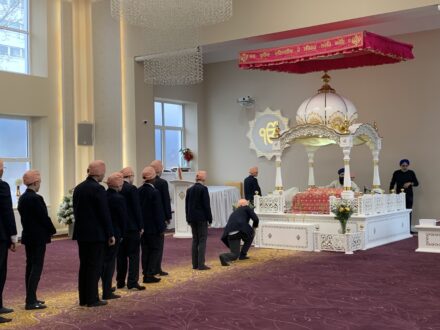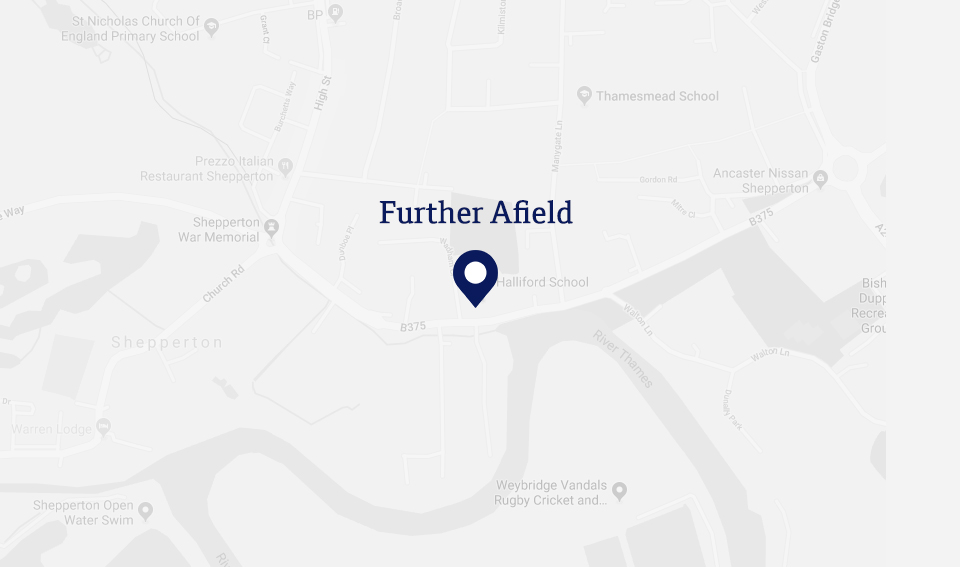Religious Studies
Introduction
Students at Halliford School have an opportunity to study Religious Studies, Philosophy and Ethics from Year 7 to Year 13.
The Department will shortly be changing its name to Religion, Philosophy and Ethics to reflect the breadth of topics that the students cover during their studies. This is supported by various Philosophy Clubs, an Inter-Faith group and opportunities for enrichment.
The Department is not affiliated with any one religion, and all students have a voice whether they regard themselves as atheist, theist or agnostic. Debate, discussion, and questioning are encouraged in each lesson, and students learn from one another and their experiences.
Years 7-9
Students in Years 7, 8 and 9 have one timetabled lesson per week. The focus is on covering the breadth of the subject and teaching both skills and knowledge. In particular, there is a great focus on debating, evaluating ideas and speaking. These skills are then harnessed and embedded further if they choose to study Religions Studies, Philosophy and Ethics at GCSE and/or A Level.
In Year 7, the students study Ultimate Questions and Judaism and complete an independent project covering the smaller World Religions. In Ultimate Questions, students cover the major philosophical questions such as the meaning of life, free will and what happens after death. They then turn to their first study of a major religion, focusing on the covenant. Finally, students will produce an independent project on religions such as Baha’i, Shinto or Druze.
In Year 8, students study Christianity, Sikhism and Eastern Philosophy. They will begin to debate more and ask hard-hitting questions, such as how political events can shape religion. They also complete a project on the Golden Temple in this year. In Eastern Philosophy, they will cover key concepts such as karma and kin tsugi.
In Year 9, we study Islam, the Problem of Evil and Ethics. We continue to stretch the students into focus on big questions, discussing Islamophobia, gender, whether God can be blamed for evil, and how to deal with moral dilemmas.
GCSE
Religious Studies at Key Stage 4 continues to grow in popularity as boys grapple with the bigger philosophical questions such as the sanctity of life, the right to life, the right to death, Just War, Creation vs Evolution, as well as more fundamentally personal belief questions such as: What gives someone faith? Should my beliefs ever change? Am I responsible for my actions?
Students explore these questions alongside many others, discussing their ideas but also considering differing religious viewpoints. At Halliford, we focus on two World Religions at GCSE level: Christianity and Islam.
A Level
Religious Studies at Key Stage 5 is a thriving subject. The course builds on the successes at GCSE and allows pupils to study three discrete elements:
- Philosophy
- Religion and Ethics
- Christianity
The course allows students to explore the thoughts of philosophers from the ancient world, Socrates, Plato, and Aristotle, as well as modern philosophical thinkers such as Joseph Fletcher, Peter Vardy, and Mary Daly, to name but a few.
The content at Key Stage 5 follows that of the OCR examining board and includes Ancient Philosophy, Arguments based on observation and reason, Religious Experience and the Problem of Evil. Alongside this, students are expected to study ethical concepts such as Natural Moral Law, Utilitarianism, Kantian Ethics, and Situation Ethics.
Co-Curricular, Trips and Enrichment
The Department currently runs two Philosophy Clubs (for juniors and seniors), having big debates and discussions unrelated to their studies, and many members have been coming since Year 7. The Inter-Faith Club is offered to support religious and agnostic students in meeting with those of other faiths and to encourage dialogue.
The Department has a growing rota of trips to support students in their studies, which have included visiting places of worship, hosting workshop speakers and attending study days at universities.
The Department also offers opportunities for additional enjoyment, such as supporting competition entries for essays or debates and attending lectures.











0 CommentsComment on Facebook